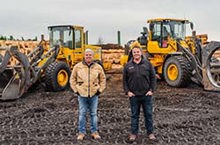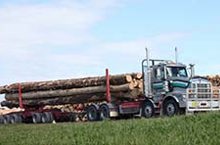
“If Government is serious about reducing greenhouse gas emissions from heavy transport and getting better value from forestry then we need a collective task force supported by Government focused on creating sustainable business from Forestry, and producing sustainable biofuels to reduce greenhouse gas emissions. Collective action has kick-started the replacement of coal by biomass as fuel for process heat. We could achieve similar from heavy transport decarbonisation if Government worked with the private sector,” says Executive Officer of the Bioenergy Association, Brian Cox, in response to the announcement that the Government has dropped the Sustainable Biofuels Obligation Bill.
“It’s not surprising as the Government has consistently looked at the opportunities for greenhouse gas emissions reduction through the wrong lens.”
New Zealand is rich in sources of biomass which can produce greater economic and wellbeing opportunities, including reduction of greenhouse gas emissions, he adds. This biomass can be from forestry, wood processing or organic waste.
“Government looks to what emissions reduction solutions we already have, rather than asking the question: What reduction solutions could we have? Our land is our biggest underutilised resource. We should be looking at creating opportunities from wise land use by asking: What greenhouse gas emission reductions could we adopt? Land owners are looking for improved land use, plus additional income from new products. We can also grow more trees if the demand for bio-based products is there.
“We also have areas like the East Cape where improved utilisation of what we already grow can provide environmental and economic benefits to local communities, while avoiding the current problems from slash. Using the wood to produce transport biofuels or producing new types of wood fuel to replace coal used by large energy users such as Huntly power station, Fonterra or steel and concrete manufacturing. We could do this if we were serious about assisting the East Cape.
“Similarly we should be looking at our organic wastes going to landfill and investigating how they can be recycled into renewable gaseous biofuel to replace natural gas.”
Mr Cox says: “Wood processing is an example of extracting value from the trees which we grow so well, and fast. Yet, traditionally we have failed to look at how we can extract even greater value from those trees, particularly from the forest residues which we leave to rot on the ground, and from the low grade logs we export.
“We have large areas of land which are not highly productively used, and often erode when storms arrive. Much of this steep or low productive land could be better managed, and produce increased value.









